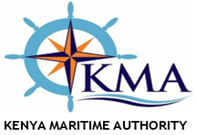Marine Environment
KMA regulates ship and offshore source pollution in Kenyan waters, implements international requirements, and coordinates national preparedness for oil and HNS incidents so that people, wildlife, and the blue economy can thrive.
Mandate & scope
KMA prevents and controls pollution from ships and offshore installations, conducts inspections, and leads national coordination for marine environmental protection and search and rescue. Enforcement is supported by merchant shipping laws and Kenya’s participation in IMO instruments and regional frameworks (Indian Ocean MOU on PSC; Nairobi Convention).

Pollution prevention & compliance
Air emissions (MARPOL Annex VI)
Kenya enforces the IMO global sulphur cap of 0.50% m/m for marine fuels. Compliance is checked via bunker delivery notes (BDNs), sampling, and verification of approved exhaust gas cleaning systems (EGCS) where used.
Source: IMO – Sulphur 2020
Energy efficiency & carbon intensity
EEXI (design efficiency) and CII (annual carbon intensity ratings) took effect in 2023 to drive continuous improvement in ship efficiency.
Garbage & sewage (MARPOL Annex V & IV)
Annex V prohibits discharge of plastics and sets strict rules for other garbage. Annex IV controls sewage discharges, with enhanced requirements in special areas and for ships with treatment plants.
Source: IMO – Marine Environment
Ballast water management
The BWM Convention requires ships to keep an approved BWM Plan and Record Book, meet D-1 exchange and transition to D-2 treatment using approved systems on their compliance schedule.
- Check BWM Plan/Record Book and officer familiarization
- Verify BWMS type-approval & operational status for D-2
- Inspect sampling points & alarms; review past reports
Source: IMO – Ballast Water Management

Oil & HNS preparedness and response
National system
Under the OPRC 1990 framework, Kenya maintains a national system for responding to oil pollution and, under the OPRC-HNS Protocol, hazardous and noxious substances—covering authority, equipment, training, exercises, and mutual assistance.
Source: IMO – OPRC
Response playbook (field)
- Detect & notify: call Duty Officer, log time/position/product/volume/weather/photos/AIS.
- Activate & assess: incident command, tier level, exclusion zones, priorities.
- Contain & recover: booms & skimmers; dispersants only with authorization; HNS safety.
- Waste & demobilize: segregate waste, document costs, after-action review.
Policy & forms are available in the document library.
Dumping at sea, intervention & regional cooperation
Dumping controls
The London Convention and its 1996 Protocol restrict dumping to a reverse list of materials subject to permits and precautionary assessment; incineration at sea is prohibited except in emergencies.
Source: IMO – London Convention/Protocol
High-seas intervention
The Intervention Convention permits coastal states to take necessary measures on the high seas to prevent, mitigate or eliminate grave and imminent danger to their coastline from pollution or threat of pollution following a casualty.
Source: IMO – Intervention Convention
Regional partnership
Kenya collaborates through the Nairobi Convention and the Indian Ocean MOU on Port State Control to harmonize measures, exchange information, and conduct joint exercises.
Compliance spotlight
Fuel checks
BDNs, sulphur sampling/analysis, EGCS verification; cross-checked with IAPP/IEEC certificates.
Reception facilities
Oversight of port reception for oily residues, garbage, sewage; report inadequacy to the competent authority (MARPOL).
Training & drills
Table-top and deployment exercises under the National Plan; lessons captured to improve activation and shoreline protection.
Data & efficiency
Review of technical files and operational data supporting EEXI/CII compliance and continuous improvement.
Partners & stakeholders
Document library
No documents available yet.
Editors add Posts in “Environment Documents”, attach a file in the Document field, and tag topics (Sulphur, Ballast Water, OPRC, Garbage, Sewage, Dumping, GHG). The grid updates automatically.
Latest environment news
Use Posts → Category “Environment News”. Items appear automatically.
Report a spill
Tel: +254 XXX XXX XXX
Email: duty.officer@kma.go.ke
- Location and time
- Substance and estimated volume
- Photos or AIS reference if available
- Caller name and contact
Prefer forms? Use the online Oil Spill Notification Form.
Submit formFAQs
How is the 0.50% sulphur limit enforced?
Through BDN checks, fuel sampling/analysis, IAPP & IEEC certificate review, and verification of approved exhaust gas cleaning systems. Non-compliance can lead to detention and penalties. Source: IMO
What does the BWM Convention require?
An approved Ballast Water Management Plan and Record Book; compliance with D-1 exchange and transition to D-2 treatment using an approved BWMS on the ship’s schedule. Source: IMO
Who leads spill response?
KMA coordinates activation under the National Plan with OSMAG, KPA, Kenya Navy, NEMA and other partners, consistent with OPRC 1990. Source: IMO



